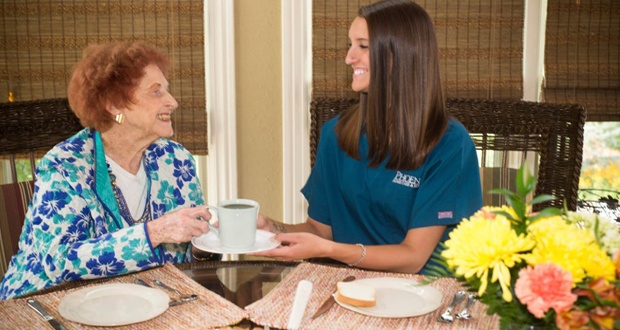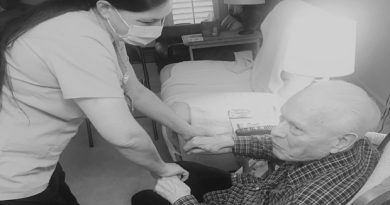What are the advantages of private nursing?
Do you have questions about how you can receive care at home from a medical professional? One way involves private duty care from a nurse. Read on to learn more about how this service helps you or your loved one.
What is private nursing?
This service, sometimes called private duty nursing, occurs when a registered nurse, who is a licensed medical professional, comes to someone’s home to deliver long-term care to someone who requires care in a familiar setting. A private duty nurse takes care of a patient’s regular needs on a frequent basis, either daily, weekly, or in some timely manner, to help with chronic health problems or healing after a hospital stay.
Who pays for private nursing?
Medicaid is the most common way people pay for private duty nursing. Other payment methods include private health insurance, managed care organizations, or private pay. For services paid through Medicaid, your doctor must prescribe in-home care for you to receive the services of a private duty nurse. Then you have a choice of which home care agency you can go with.
What are the advantages of private nursing?
Private duty nursing has several advantages with the overall goal of healing at home.
- Healing at home has the possibility of better healing outcomes compared to extended hospital stays or residing in a long-term care facility.
- Cheaper than a long-term care facility.
- No limits on visiting hours from family and loved ones.
- Healing in familiar surroundings rather than in a strange place.
- Patient has full control over the level of care.
What is the role of a private nurse?
A private nurse is a licensed medical professional who oversees and manages someone’s healing at home. Ordinarily, a private nurse already has experience in the field. This medical professional handles several aspects of someone’s healing at home.
- Assessing someone’s current medical condition by taking vital signs, recording information, and determining the next steps.
- Managing chronic illness and conditions in a patient.
- Noting any changes in the patient’s condition from a previous visit.
- Managing medications as prescribed by the patient’s doctor.
- Creating a treatment plan for patients in conjunction with the patient’s care team.
- Helping someone with daily living activities so they can have as much independence as possible.
- Medication management, such as making sure the patient takes prescription medicine and filling prescriptions.
- Making, maintaining, and monitoring a diet plan for patients to ensure the best nutrition based on a doctor’s instructions.
- Giving injections and intravenous medications.
- Providing wound and dressing changes and care.
- Occupational therapy to help with someone’s mobility and movement.
- Hospice care, if a doctor believes the patient is near the end of life.
- Pain and symptom management to make sure a patient lives as comfortably as possible.
- Assessing ongoing needs of the patient.
- Educating the patient’s family on the best ways to care for a loved one at home based on a doctor’s recommendations and standard medical practice.
- Suggesting other treatments based on the assessment of patients.
- Transporting a patient to appointments or to the hospital, if warranted.
- Regularly checking on a patient to make sure they receive the best care available.
- Performing medical procedures.
- Tracking medical monitors and technology, including wearable devices and connected devices that display data on a patient’s medical condition, including breathing machines, heart monitors, and oxygen levels.

What is the difference between private nursing and skilled nursing?
Skilled nursing involves a medical professional caring for a patient, while private duty nursing brings a skilled professional, who is licensed to practice medicine, into someone’s home to receive care in familiar surroundings.
Private duty nurses are licensed medical professionals, including:
- Registered Nurses (RNs)
- Licensed Practical Nurses (LPNs)
- Home Care Registered Nurse
- Nursing Manager
What is the difference between private nursing and in-home care or a private caregiver?
In-home care does not require a licensed medical professional to make decisions on someone’s health status. Private nursing upgrades the level of care if someone requires regular monitoring of a medical condition.
A private caregiver offers personal care services rather than medical services.
How do I get a private nurse for myself or a loved one?
Typically, this process starts with a doctor’s prescription. Then you contact a home health agency of your choosing that handles Medicaid payments. Once you reach out, the home health agency assesses the needs of your patient.
During the conversation, the company will talk to you, your loved one, your family, and the loved one’s care team. At Phoenix Home Care & Hospice, we will conduct an assessment before signing a contract because this type of decision is very important.
Before we begin any care, we will send someone into your loved one’s home to take stock of the living environment as well as develop a plan for medical care.
Phoenix believes in developing relationships with families to foster the best kind of care for your loved one. The nurse assigned to your loved one’s case will be very friendly, caring, and compassionate during the time we care for your family.
How much does private nursing cost?
Medicaid and health insurance will take care of the costs of private duty nursing. In the United States, the average cost is about $275 per day. Some agencies have a minimum visit time of two to four hours. Costs may increase or decrease depending on how often a private duty nurse spends with you or your loved one.
What happens during a private nursing assessment?
Our nursing team will conduct an in-depth assessment of you or your loved one’s needs.
We will:
- Evaluate your patient’s current physical, mental, and emotional state.
- Gather as much information as possible to get a full picture of someone’s needs, challenges, goals, expectations, and ways to improve someone’s healing.
- Identify the state of or progression of a person’s illness.
- Analyze medications and allergies for potential problems.
- Talk to family members to make sure they understand what we provide and how we will proceed.
How do I begin private nursing care for myself or a loved one?
Contact Phoenix Home Care at 855-881-7442. We’ll have an honest discussion about your needs or the needs of your loved one while healing at home under the care of a private nurse. Team Phoenix provides several home care services in Missouri, Kansas, and Illinois.
Phoenix Home Care & Hospice
2945 SW Wanamaker Dr., Suite B
Topeka, KS 66614
785-260-6444






